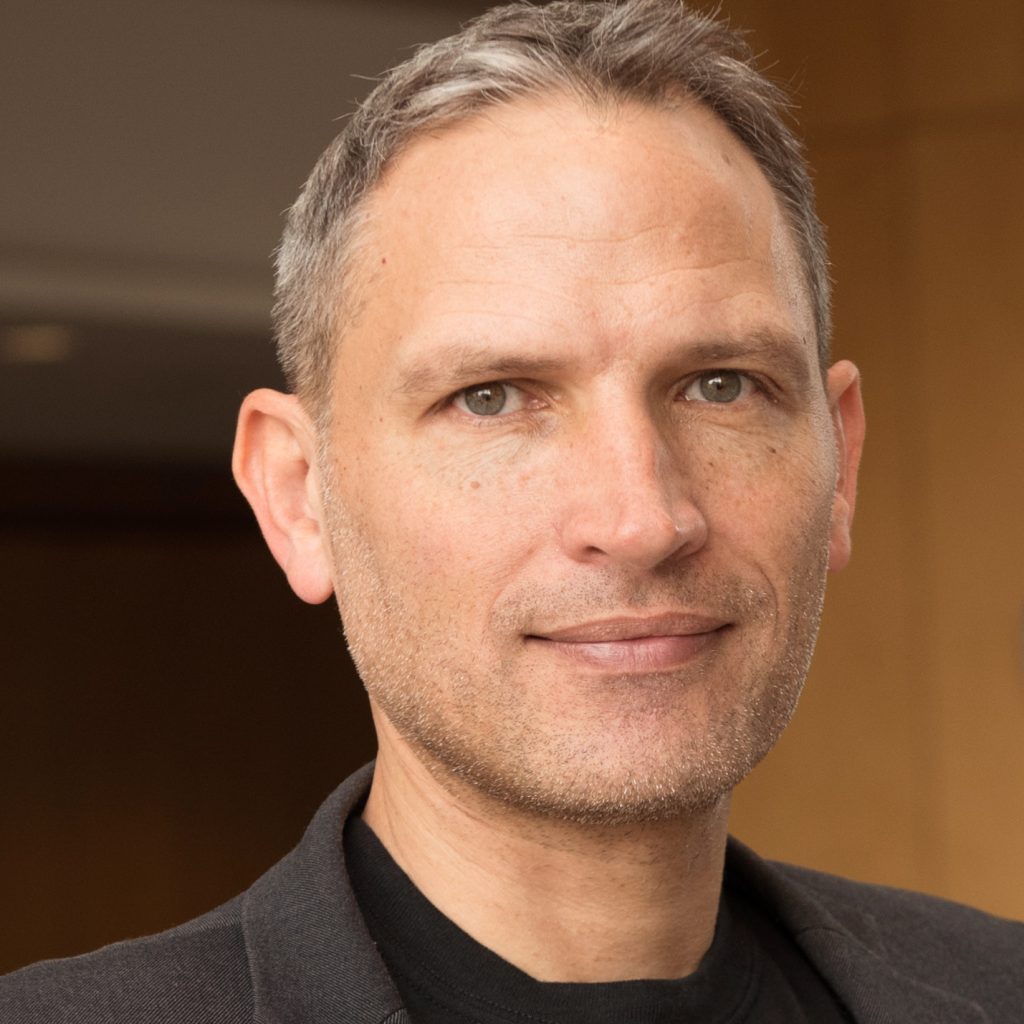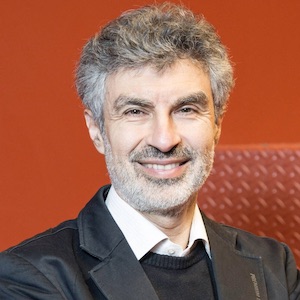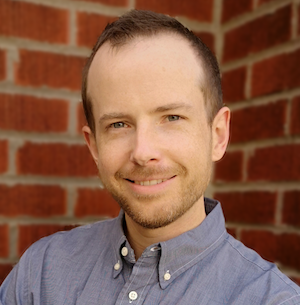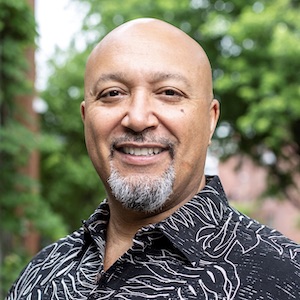Abundant Intelligences Integration Series: Epistemological Foundations Conversation
Artificial Intelligence
The Epistemological Foundations Conversations feature members of the Abundant Intelligences research team sharing how the knowledge frameworks in their field are constructed, validated, and employed. Our second EF Conversation features Prof. Yoshua Bengio (UdM & Mila), Keoni Mahelona (Te Hiku Media), and Prof. Blake Richards (McGill & Mila).
Integrating Indigenous Knowledges with the knowledge systems that underlie AI research is fraught with epistemic challenges. Fundamental questions about what counts as knowledge, how we validate that knowledge, and how we act on it become acute when such different frameworks for engaging the world come into relationship with one another. For instance, much Indigenous Knowledge resides in cultural practices such as stories and songs, with an insistence on retaining the complexity of lived experience. This can make them seem unruly when viewed from a Western scientific framework that prioritizes climbing a ladder of abstraction to reach simple universal principles. A major goal of the Conversation Series is to address these discrepancies so as to synchronize expertise, methodologies, and goals that reside within the Abundant Intelligences Research Program.
Event
Impact
Conference / panel
Speakers:
Keoni Mahelona
Karim Jerbi
Yoshua Bengio
Blake Richards
Jason Edward Lewis
Date:
2024-02-12
Location:
Canada
Featured People

Keoni Mahelona
Keoni Mahelona is the Chief Technology Officer at Te Hiku Media and a leading practitioner of Indigenous data sovereignty. Originally from Anahola on the island of Kauaʻi, Hawaiʻi, Keoni has been living and working in Te Hiku o Te Ika for over 10 years having first arrived in Aotearoa as a Fulbright Scholar. As a driving force behind the development of digital innovation projects that seek to secure the future of te reo Māori and other indigenous languages, Keoni makes decisions every day to protect the sovereignty of Māori data, from the digital tools employed to advance projects, the storage of data and sharing data in appropriate and secure ways.
Mahelona works at THM building innovative Te Reo Māori speech recognition tools. They will contribute their experience building NLP technology from within a framework of strengthening Indigenous data sovereignty.

Karim Jerbi
Karim Jerbi is a professor at the Psychology department of the University of Montreal. He is Canada Research Chair in Computational Neuroscience and Cognitive Neuroimaging and heads UNIQUE, the Quebec-wide Neuro-AI research center. He is also associate professor at Mila (the Quebec AI research institute). Dr Jerbi holds a PhD in Cognitive Neuroscience and Brain Imaging from the Pierre & Marie Curie University in Paris and a biomedical engineering degree from the University of Karlsruhe (Germany). His research lies at the crossroads between cognitive, computational and clinical neuroscience. The specific goal of the research conducted in his lab is (1) to elucidate the role of neural oscillations and large-scale neural communication in cognition (incl. decision-making, attention, consciousness, creativity), and (2) to investigate brain network alterations in psychiatric and neurological disorders. The multidisciplinary research conducted in his laboratory combines brain imaging techniques, such as magnetoencephalography (MEG), scalp- and intracranial electroencephalography (EEG) with advanced signal processing, modeling and data analytics including machine learning. Dr Jerbi also has a keen interest in the convergence between neuroscience, AI and art, as well as the promotion of justice in and outside science.
Karim Jerbi is CRC (Tier 2) in Computational Neuroscience and Cognitive Neuroimaging and Director of UNIQUE Neuro-AI Research Center at UdM. He will contribute expertise exploring the intersection between cognitive, computational, and clinical neuroscience, as well as how knowledge frameworks from different cultural contexts affect our understanding of intelligent action.

Yoshua Bengio
Recognized worldwide as one of the leading experts in artificial intelligence, Yoshua Bengio is most known for his pioneering work in deep learning, earning him the 2018 A.M. Turing Award, “the Nobel Prize of Computing,” with Geoffrey Hinton and Yann LeCun.
He is a Full Professor at Université de Montréal, and the Founder and Scientific Director of Mila – Quebec AI Institute. He co-directs the CIFAR Learning in Machines & Brains program as Senior Fellow and acts as Scientific Director of IVADO.
In 2018, he collected the largest number of new citations in the world for a computer scientist and in 2019 was awarded the prestigious Killam Prize. Since 2022 he has the largest h-index impact factor in computer science, worldwide. He is a Fellow of both the Royal Society of London and Canada and Officer of the Order of Canada.
Concerned about the social impact of AI and the objective that AI benefits all, he actively contributed to the Montreal Declaration for the Responsible Development of Artificial Intelligence.
(OC FRS FRSC) is the 2019 Turing Award co-winner; Prof. at U de Montreal (UdM); Founder, Scientific Director, and CIFAR AI Chair at Mila Quebec AI Institute; and Scientific Director of IVADO Institut de valorisation des données. He will contribute foundational expertise in Deep Learning (DL).

Blake Richards
Blake Richards is an Associate Professor in the School of Computer Science and Montreal Neurological Institute at McGill University and a Core Faculty Member at Mila. Richards’ research is at the intersection of neuroscience and AI. His laboratory investigates universal principles of intelligence that apply to both natural and artificial agents. He has received several awards for his work, including the NSERC Arthur B. McDonald Fellowship in 2022, the Canadian Association for Neuroscience Young Investigator Award in 2019, and a CIFAR Canada AI Chair in 2018. Richards was a Banting Postdoctoral Fellow at SickKids Hospital from 2011 to 2013. He obtained his PhD in neuroscience from the University of Oxford in 2010 and his BSc in cognitive science and AI from the University of Toronto in 2004.
He will contribute his expertise in integrating neuroscience with artificial intelligence, memory consolidation and neural plasticity, and computational models of visual processing.

Jason Edward Lewis
Jason Edward Lewis is a digital media theorist, poet, and software designer. He founded Obx Laboratory for Experimental Media, where he conducts research/creation projects exploring computation as a creative and cultural material. Lewis is deeply committed to developing intriguing new forms of expression by working on conceptual, critical, creative and technical levels simultaneously. He is the University Research Chair in Computational Media and the Indigenous Future Imaginary as well Professor of Computation Arts at Concordia University. Lewis was born and raised in northern California, and currently lives in Montreal.
